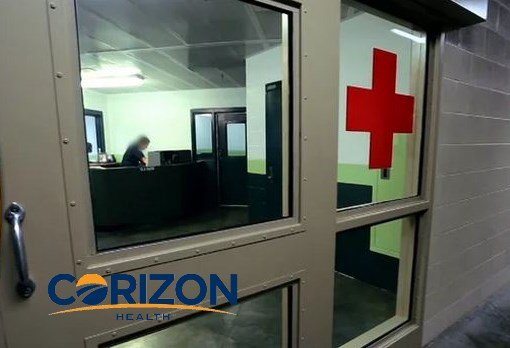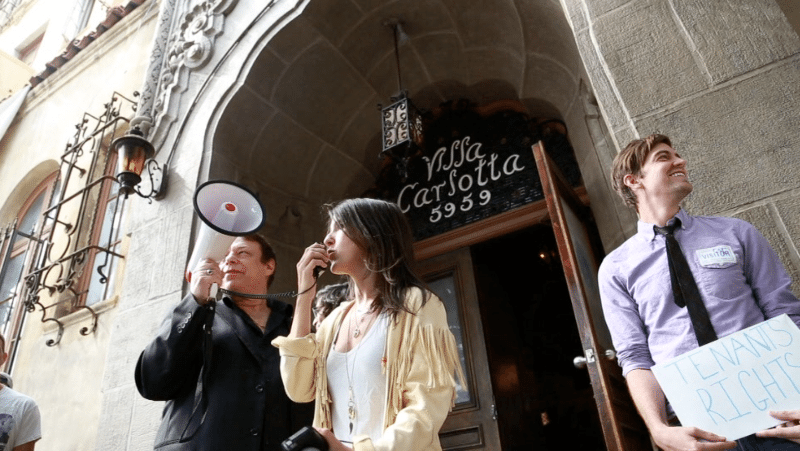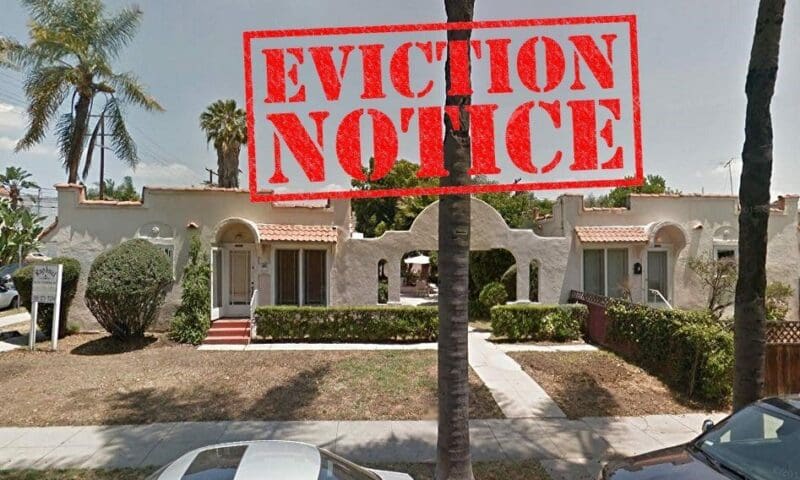

Two court orders and the most expensive wrongful death settlement in California history should be enough. But not for Corizon, a corrections health care company owned by a private equity firm.
For seven months earlier this year, Mario Martinez, a prisoner in Corizon’s care at the Dublin, California Santa Rita Jail, suffered from asthma that kept getting worse. A judge issued two court orders requiring the company to provide Mario urgently needed surgery, but they didn’t operate. While Mario suffered, Corizon even settled a lawsuit for $8.3 million with the family of a prisoner who, five years earlier at the same jail, had died in the company’s care.
In July, Mario suffered an asthma attack, collapsed in his cell and died.
Mario’s mother, Tanti Martinez, had hoped to bring her son’s story to Pope Francis, who on Sunday visited a Philadelphia jail that also contracts with Corizon.
» Read more about: Cruel and Unusual Punishment: Private Correctional Health Care »


History may record the August 2014 sale of the Villa Carlotta in Hollywood’s Franklin Village neighborhood as the moment in time when the legendary ‘Grande Dame’ became a statistic.
The 1926 apartment building was famously a stop along the path through Hollywood for numerous actors, musicians and other artists, but it has also been a home to those like eighty-three year old Sam Fuller, who lived there for 40 years. He and many other long-term residents who had hoped to live at the Carlotta for the rest of their lives received eviction notices just before Christmas last year.
“We were [being evicted and then] atomic-bombed—Ellis-Acted,” said Sylvie Shain, one of the few remaining residents, referring to a 1985 state law that allows landlords to evict tenants from their rent-controlled units if they are changed to non-rental use.
The Villa’s new owners, CGI Strategies, are attempting to use the Ellis Act to convert the 50-unit rent-controlled complex into a luxury hotel for extended stay tenants.
» Read more about: Villa Carlotta’s Tenant Warriors Fight to Save Homes and History »


He’s been a pope of many firsts already. The first to invite Catholics to forgive women who have had abortions, and the first to refrain from judging gay people to cite just two that have made headlines. But he’s also arguably the first pope to press hard against not just the reality of poverty, but the culpability of the economic system that is in large part driving it. He’s vocal about immigration. It’s as if Pope Francis is the first pope who is actually listening, and that makes him relevant in a way his predecessors simply were not.
He’s also about to be the first pope to ever speak before Congress. We can only hope they’ll listen. Since nearly a third of them are Catholics, I think many of them will. In fact, there are more Catholics in Washington these days than ever. Six of the 9 Supreme Court Justices are Catholics,
» Read more about: The Listener: Pope Francis Sets a Different Course »


“We’re not here because Mr. Kaplan helped us do better on standardized tests,” said one of the nearly one thousand students, former students, teachers, and friends gathered Sunday in the auditorium of Hamilton High School on Robertson to honor the beloved teacher Alan Kaplan who died August 29th.
Mr. Kaplan taught history and psychology in Hamilton’s Humanities Magnet program for 33 years. Through his teaching Kaplan was determined to do something about the achievement gap between white students and students of color. “He was devoted to helping students understand the process, the psychology and the history of racism in our country, believing it would be therapeutic,” said a colleague. Using “The Peoples’ History of the United States” by Howard Zinn as his history text, Kaplan’s lesson plans connected students to what was happening beyond the school walls. “He opened up the world to us” was how a former student,
» Read more about: "Don’t Believe Everything You Think." Remembering Teacher Alan Kaplan »


Twenty-six-year-old Takele Gobena is part of the “on-demand” economy, working full-time as a driver for Uber and part time for Lyft. The Ethiopian immigrant quit his job at the Seattle-Tacoma International Airport and purchased a new car to drive for the ride-hailing firms, believing it would make him a better provider for his one-year-old daughter. Instead, Gobena now finds himself in debt and, after expenses, making well below minimum wage. But because Uber and Lyft drivers are classified as independent contractors, Gobena is not protected by minimum wage laws.
Gobena’s plight is an increasingly familiar one. A new report from the National Employment Law Project, “Rights on Demand: Ensuring Workplace Standards and Worker Security In the On-Demand Economy,” highlights the problems so many on-demand workers face: “Characterizing workers as non-employees has serious negative consequences for them: non-employees have no statutory right to minimum wage, overtime pay,


In the 1947 science fiction novel Greener Than You Think, a scientist invents a powerful fertilizer intended to boost crop production and combat hunger. The salesman she hires, however, sees more business potential in lawn care, and convinces a Los Angeles homeowner to try the formula on a yellowing, “sad and sickly” front yard. When the salesman stops back the next day, the lawn is transformed. “There wasn’t a single bare spot visible in the whole lush, healthy, expanse. And it was green. Green . . . over every inch of its soft, undulating surface: a pale apple green where the blades waved to expose its underparts and a rich, dazzling emerald on top.”[i]
The lawn grows uncontrollably in the novel, and the grass ultimately takes revenge and crushes cities like a green giant. Whether or not author Ward Moore chose the L.A.
» Read more about: Drought Lawns: The Ungreening of Los Angeles »


As major climate legislation that would dramatically increase our investment in renewable energy approaches the Governor’s desk, this is a critical time to be thinking about low-income communities, including South Los Angeles, for whom the benefits of renewable energy investment have been largely out of reach.
The Los Angeles Alliance for a New Economy (LAANE), in partnership with my organization, Strategic Concepts in Organizing and Policy Education (SCOPE), recently conducted an analysis of the L.A. Department of Water and Power’s most established renewable energy program, the Solar Incentives Program (SIP). We found that this residential rooftop solar initiative has left South L.A. behind, along with Wilmington, Boyle Heights, Pacoima and other communities.
This program offers incentives for residents who buy and install their own rooftop solar energy systems from private solar companies. In the past 15 years, LADWP has invested more than $115 million of ratepayer funds to support the development of residential rooftop solar.
» Read more about: Realizing the Promise of Solar for South Los Angeles »


Thanks to the determined efforts of tenant activists and area residents, real estate developer Matthew Jacobs’ plan to demolish eight affordable housing units in the Fairfax District and replace them with “luxury” living accommodations has been put on hold—for now. Jacobs (who recently resigned from his chairman post at the California Housing Finance Agency), his business partner Guy Penini and their company, Bulldog LLC, had already begun demolition of the rent-controlled bungalow structures located at 750-756 N. Edinburgh Avenue (where they used the Ellis Act to evict eight families), when the city abruptly halted their tear-down undertaking.
Tenant activist Steve Luftman, who lives in another Jacobs-owned building that was also slated for the wrecking ball, is involved in the Edinburgh preservation project — just as he was for the building that he lives in. Luftman’s Flores Street apartment complex was designed by noted architect Mendel Meyer,
» Read more about: Historic, Affordable Bungalows Saved from Wrecking Ball »


It was 2008 and presidential hopeful Barack Obama was inspiring millions of people with his promise to disrupt politics as usual – and a new startup called Airbnb was turning that enthusiasm for change into millions of dollars. Denver, the site of that year’s Democratic National Convention, was expecting 80,000 people to come watch the senator from Illinois accept his party’s nomination. The city had space for less than half.
“Obama supporters can host other Obama supporters,” is what CEO Brian Chesky recalls thinking to himself. In a profile of the company, the Huffington Post notes how that idea was turned into cash. “Airbnb, which lets users rent out part or all of their homes, blasted bloggers in Denver with company information.” It “sold ‘Obama O’s’ cereal around town,” garnering news coverage as “an innovative solution to the city’s lodging crisis.”
Founded in 2007,
» Read more about: The Sharing Economy's Liberal Lobbyists »
I hope the oil lobbyists in Sacramento broke out some high-priced Champagne this weekend. They deserve it. They just scuttled the biggest and most likely-to-succeed effort in the history of California to save the planet.
Oil industry ad decrying what it called the “California Gas Restriction Act of 2015”
Senate Bills 350 and 32 had already passed in the upper house. As my Capital & Main colleague Bill Raden summarized, SB 32, authored by state Senator Fran Pavley (D-Agoura Hills), would “extend the greenhouse gas (GHG) emission reductions” achieved a few years back through Assembly Bill 32. Senate bill 350, introduced by Senate president Pro tempore Kevin de León (D-Los Angeles) – named after the threshold of carbon particles per million that our planetary life cannot surpass – aimed to set standards for California that would “double the energy efficiency of its older buildings,